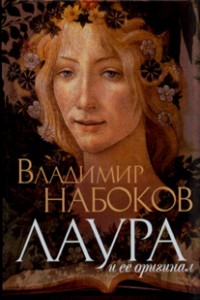 Gleb Struve, a renowned twentieth-century critic, called Vladimir Vladimirovich Nabokov “émigre Russia’s greatest gift to Russian literature”. Born in 1899 to a family of aristocrats in St. Petersburg, Nabokov received an excellent education, attaining fluency in English, French, and Russian before the age of five. Fleeing the turmoil of the Russian Revolution in 1917, Nabokov traveled first to the Crimea, then to England in 1918, where he enrolled in Trinity College at Cambridge, then to Berlin in 1922, where he first took up his professional career of letters, then briefly to France before the onslaught of World War II, and then to America, where he continued his literary pursuits while teaching at Wellesley, Harvard, and Cornell.
Gleb Struve, a renowned twentieth-century critic, called Vladimir Vladimirovich Nabokov “émigre Russia’s greatest gift to Russian literature”. Born in 1899 to a family of aristocrats in St. Petersburg, Nabokov received an excellent education, attaining fluency in English, French, and Russian before the age of five. Fleeing the turmoil of the Russian Revolution in 1917, Nabokov traveled first to the Crimea, then to England in 1918, where he enrolled in Trinity College at Cambridge, then to Berlin in 1922, where he first took up his professional career of letters, then briefly to France before the onslaught of World War II, and then to America, where he continued his literary pursuits while teaching at Wellesley, Harvard, and Cornell.
Despite the controversial nature of his novels, Nabokov’s works have received international acclaim and scholarly recognition. His most famous texts include The Defense (1930), The Gift (1938), The Real Life of Sebastian Knight (1941), Lolita (1950), Speak Memory (1951), Pale Fire (1962). It’s been a privilege this semester to be enrolled in Professor Julian Connolly’s seminar here at the University of Virginia on writings by Nabokov and other émigre authors. See Professor Connolly’s most recent work A Reader’s Guide to Nabokov’s “Lolita.”
Before finding his artistic strengths in the realm of prose, Nabokov tried his hand at poetry. The following two short works represent foundational expressions of Nabokov’s creative consciousness and provide a glimpse into the early outlooks a great artist whose works seem ready to span generations and cultural contexts.
—————————-
Live. Do not complain, and
Do not count past years or planets,
And well-composed thoughts will merge
Into a single answer: there is no death.
Be merciful. Do not summon kingdoms.
Gratefully value all.
Pray– for a cloudless sky,
And cornflowers in wavy rye.
While not despising the dreams of the worldly-wise,
Persevere to create the best.
Among birds, the trembling, and the scant,
Learn to bless, learn to bless!
–February 14, 1919
Translated by Michael Marsh-Soloway
Original Russian
ни лет минувших, ни планет,
и стройные сольются мысли
в ответ единый: смерти нет.
Будь милосерден. Царств не требуй.
Всем благодарно дорожи.
Молись — безоблачному небу
и василькам в волнистой ржи.
Не презирая грез бывалых,
старайся лучшие создать.
У птиц, у трепетных и малых,
учись, учись благословлять!
—————————-
The almond tree blossoms at the crossroads,
The almond tree blossoms at the crossroads,
Mist flickers over the mountain,
Silver speckles hurry
Along the azure surface of the sea.
The chatter of birds, inspired
The evergreen leaf more brightly.
Blessed is he who on this spring day
Exclaims earnestly: “I am pure!”
– March 24, 1918
Translated by Michael Marsh-Soloway
Original Russian
Цветет миндаль на перекрестке,
Мерцает дымка над горой,
Бегут серебряные блестки
По глади моря голубой.
Щебечут птицы вдохновенней,
Вечнозеленый ярче лист.
Блажен, кто в этот день весенний
Воскликнет искренно: “Я чист!”
– By Michael Marsh-Soloway
